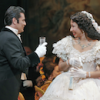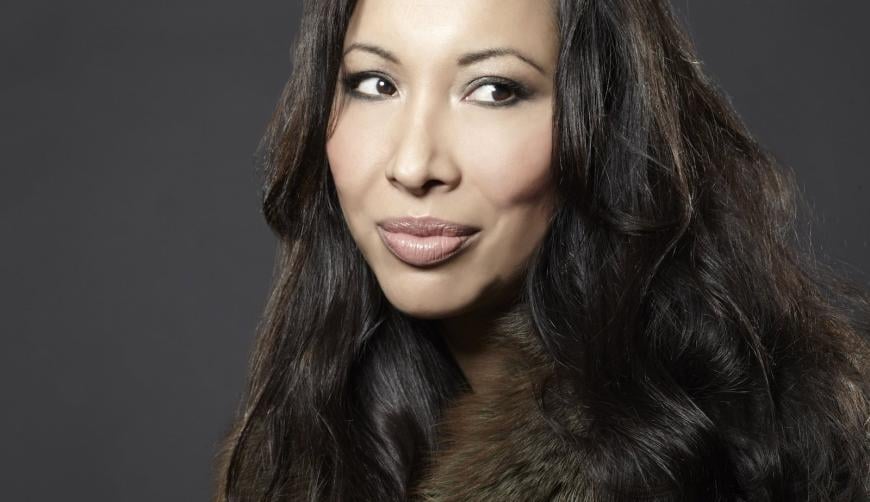
In the first act of Mozart’s Così fan tutte, the ironically named “Fiordiligi” (Flower of loyalty) is tasked with one of the toughest challenges in all of opera, the register-jumping, pyrotechnic aria, “Come scoglio!” (Like a rock). Soprano Nicole Cabell will make her role debut as Fiordiligi this November, adding another character with a bit more vocal heft to a repertoire which now counts Mimì in La bohème, the Countess in Le nozze di Figoro, and Violetta in La traviata as staples.
When she spoke with SFCV in 2009, Cabell was enjoying the acclaim of her first solo album, Soprano, for Decca, and was busy singing the lyric roles that would make her a star. Pamina in Die Zauberflöte, Juliette in Roméo et Juiliette, and Adina in L’elisir d’amore.
Like many singers, Cabell stayed faithful to her craft and art throughout the pandemic by means of virtual performances and seminars, plenty of online teaching, and in Cabell’s case, a well-timed appointment to the faculty of her alma mater, the Eastman School of Music in her new home town of Rochester, New York.
After two tumultuous seasons, the sands of the opera world are still shifting, and many of the upcoming engagements of this winner of the BBC’s Singer of the World in Cardiff (2005) have yet to be officially announced. But the next few months will find Cabell singing Barber’s Knoxville: Summer of 1915 in Tucson, Mahler’s Second Symphony with the Rochester Philharmonic, a Brahms Requiem in Buffalo, and performances of George Walker’s Pulitzer Prize-winning Lilacs with Sir Simon Rattle and the London Symphony Orchestra.
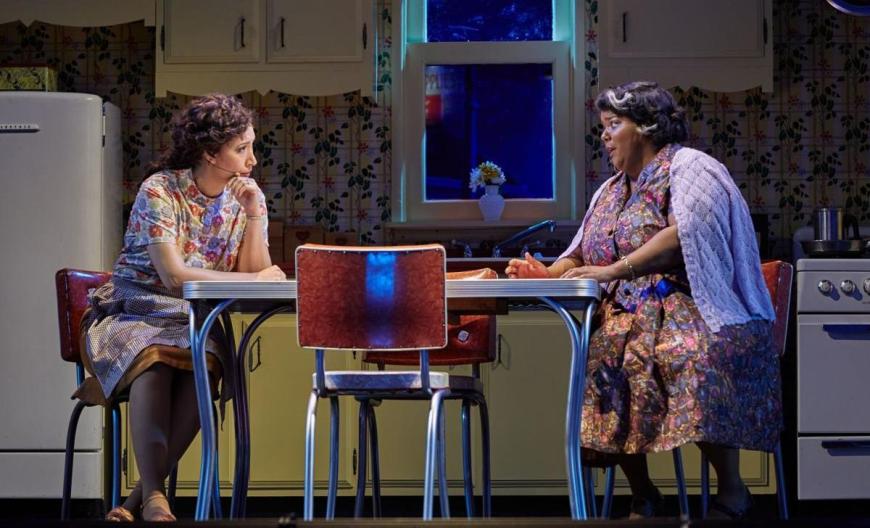
Cabell’s first staged opera after the opera house closures during the pandemic was William Grant Still’s rarely performed Highway 1, USA, which was performed in an outdoor (parking lot) production by Opera Theatre of St. Louis. Originally scheduled to sing Porgy and Bess with the company, the substitution of Still’s opera was something of a silver lining for Cabell and, along with her upcoming performances of Lilacs, reflects the singer’s growing interest in a broader, less conventional range of works, by more diverse composers.
Cabell shared via Zoom interview that she is glad to be returning to the opera house with San Francisco Opera, which she says has been “particularly cautious” during the lengthy rehearsal process.
When asked which moment in Mozart’s opera is her favorite, Cabell says she is still making up her mind.
I mostly do have favorite moments, but because this one is new, I haven’t quite figured it out yet. But in general, my favorite moments are singing with Irene Roberts, because our voices blend very well together. My second duet with her is really fun. And I love singing my duet with Ben Bliss, where I finally cave in. I would normally say the finales, because I love Mozart finales; in Nozze the Act I finale is my favorite. But in this opera, Act I is so pattery for us girls, it’s almost like Rossini. You have to really concentrate.
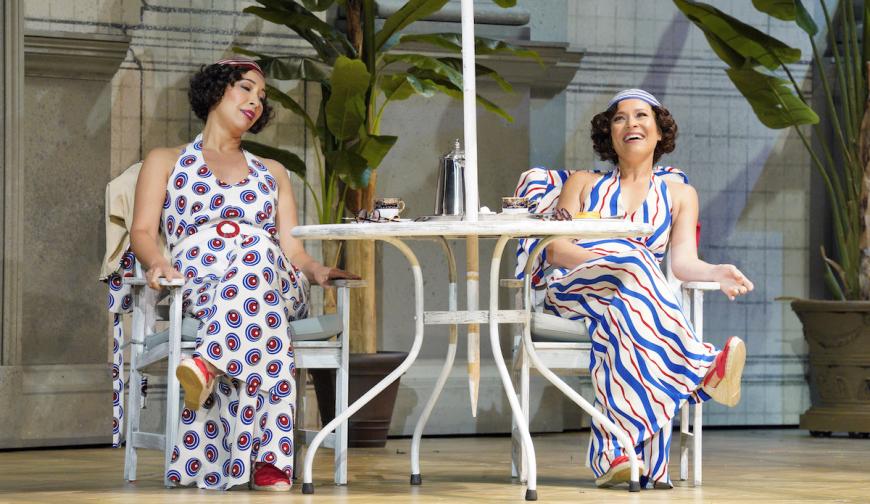
Talk a little bit about the character of Fiordiligi.
This is my first Fiordiligi, so I was able to come in without a preconceived notion of who she is. I watched a lot of productions, and read a lot, but it really depends on the staging. This is a very comedic version, but she goes on a journey. She starts out with a sense of responsibility, especially toward her sister, and that makes her a bit stubborn and bull-headed, which is admirable, to a point. But as she gets tempted by these “strangers,” she discovers things about herself. Her feelings towards her fiancé in the beginning had more to do with duty, and thinking she was in love. She loved the idea of love. We’ve all been there. We’re playing her relatively young, and she feels things for the first time with this stranger. Her journey is not one of being worn down, but of giving herself permission to feel deeply. You’ve got to create that difference. At the beginning her love of her fiancé are a bit shallow, a bit fluffy. Not, in my opinion, as deep as what she feels for this stranger. But you have to see where it goes, it may change over the course of the run.
But it also takes Fiordiligi a lot longer than her sister to give in, too, because of societal pressure. I think of her a little bit like the older sister [Mary] in Downton Abbey. She gives in to pleasure, and to something that’s a little bit naughty. And then it’s not really shame she feels, there might be a little bit of that, but it’s this struggle, “what will people think of us?” And she says that in the opera, “do you want people talking about us in this way?” You have that struggle in her that’s not just about love and betrayal, but about social image.
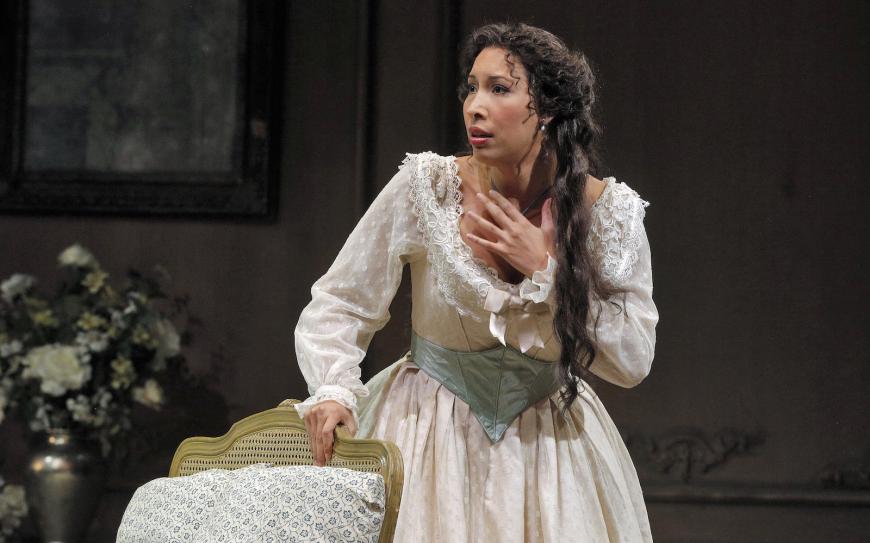
When we spoke in 2009 you had a long bucket list, including Mimì, which you’ve now done. You had mentioned Manon back then. Did that ever come to pass, or what is left on the bucket list?
2009 was when I was just dipping my toes into slightly bigger repertoire. I had been singing Adinas and Paminas. But I had this goal, to sing at the Paris Opera, and to sing Mimì, and I was able to do both at the same time, in 2014. I thought that was it for my bucket list. To be honest, everything that has come after that has been just fun, I don’t have to prove anything. Alcina, which I did in Geneva, was not a role that was on my list, [but] if I had known how great a role it was it would have been.
I would like to explore Strauss, but in small houses. San Francisco, The Met, Chicago, I don’t think I have the voice for big things in big houses. But I do in European houses. There I can sing bigger roles. Mimì, Fiordiligi, Contessa, these I can sing in a house the size of San Francisco, but I wouldn’t go bigger, because I am very protective of my voice and I want to sing a long time. I’ve always wanted to sing Blanche DuBois in A Streetcar Named Desire. One might not picture me in that role, but I’ve always wanted to do it.
Manon, I don’t really think I’m a Manon anymore. In a teeny, tiny house, under a 1,000 seats, I might do Puccini’s Manon Lescaut. What’s cool, Highway 1, USA is an example of a lot of productions that are newer, or haven’t been done, and I’d like to go in that direction, to sing more operas that are unknown, from diverse composers, and fill out my repertoire that way. But of the canon repertoire I don’t have that much more. Der Rosenkavalier, but in a tiny house.
How do you plan to find the balance between teaching and performing?
Engagements like this one, where I’m away for months at a time, will happen less, though of course when I get an offer like this, Eastman is very happy to have me represent them, and they arrange a substitute for me while I’m away so I don’t have to teach online and I can just focus. But my manager and I have been working hard so that I have a good relationship with concert organizers and symphonies. Of course, when I get an offer like this with a wonderful house like San Francisco, I will take it. But I don’t see opera being 75 percent of what I do. I see opera as 30 to 40 percent, teaching as 30 or 40 percent, concert as 20 percent.
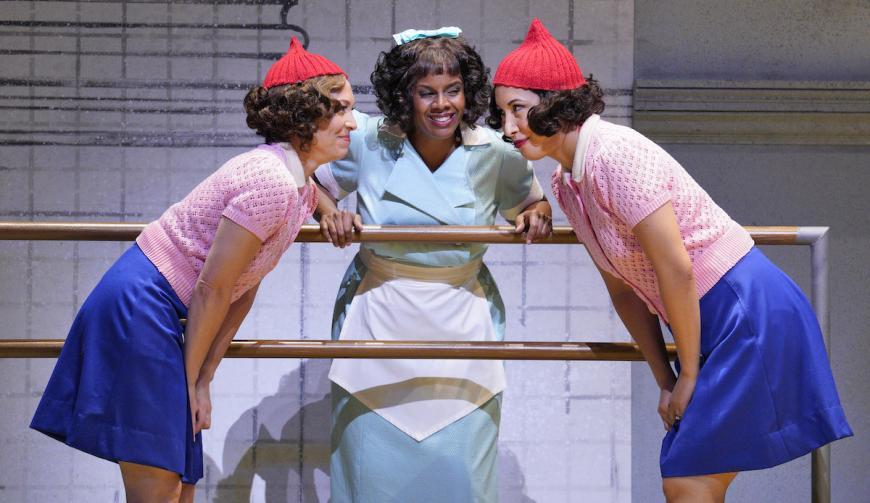
Critics use adjectives like “creamy” and “velvety” to describe your voice. Is there an aspect of your technique — obviously it’s your instrument — but from a singer’s point of view, what do you do to achieve that?
I’ve heard that. It’s a color, I think. Some voices just have a warmer color. It can be problematic, because it’s quite difficult sometime to find the clarity of diction in voices that have that plushness. Most of my teachers, from the beginning, and still to this day, were trying to get me to find resonance, and add some steel, because my natural default is to that richness.
But if one is trying to capitalize on that quality, the way is to make sure the mechanism isn’t squeezed, isn’t too nasal, that there’s space in the pharynx and that there’s enough space between the soft palate and the throat. Some might call it an open throat, but you can take it too far and get too cavernous, one has to always find that balance. But I’ve given many, many hours of voice lessons at this point and I do think most of my students have that ability to have that richness, that velvety, chocolaty, whatever you want to call it. You can’t ask them to add this, but when we’re using the optimal positioning for their biological structure, using the mechanism in the most effective way, that will come in. All that is to say, I do think people are born with more or less of that.
Speaking of teaching, I wanted to say I’m sorry about the death of Gianna Rolandi. Would you like to talk about what she meant to you as a teacher, or as a role model?

I appreciate you saying that, thank you. She was extremely influential in my development. I’ve had several teachers through the years. All singers can say that each of their teachers gave them something special. But Gianna was more than a teacher to me. I considered her more like a family member at a certain point.
After I graduated from the Center [Lyric Opera of Chicago’s Ryan Opera Center], we would see each other. It wasn’t just about hearing my voice — we would go to lunch. But as a teacher, I was very young when I came into the Opera Center in Chicago, and she lined me up as a singer, if that makes sense. She got me singing much more resonantly, and much more energized. I loved the way she talked about music, and making it personal. Some teachers can be just much more technical, but she really helped me to find a relationship with every piece that I was singing, not just in vocal production, but as a character.
If you’ve seen her sing anything, she had so much personality on stage, and all that personality was present in her teaching. We would laugh all the time. She would allow me to express how much I loved or didn’t love a piece of music. I’m a singer like any other, I had my neuroses, and she had patience with me. She went too soon.
You’ve talked about the importance of a positive environment in the studio, but sometimes classical artforms have some mean aspects woven into the traditions, too. How do you figure out how to achieve excellence, but with kindness?
Right, what was that movie that came out a few years ago with the drummer? [Whiplash]
Yes, and I heard all the arguments at the time among musicians, many who said that’s not how you get good at music.
There are a few students who love that kind of pressure: Push me, push me! But I always feel if you are at a university you shouldn’t need to be pushed. If you need pushing, you probably shouldn’t be doing this.
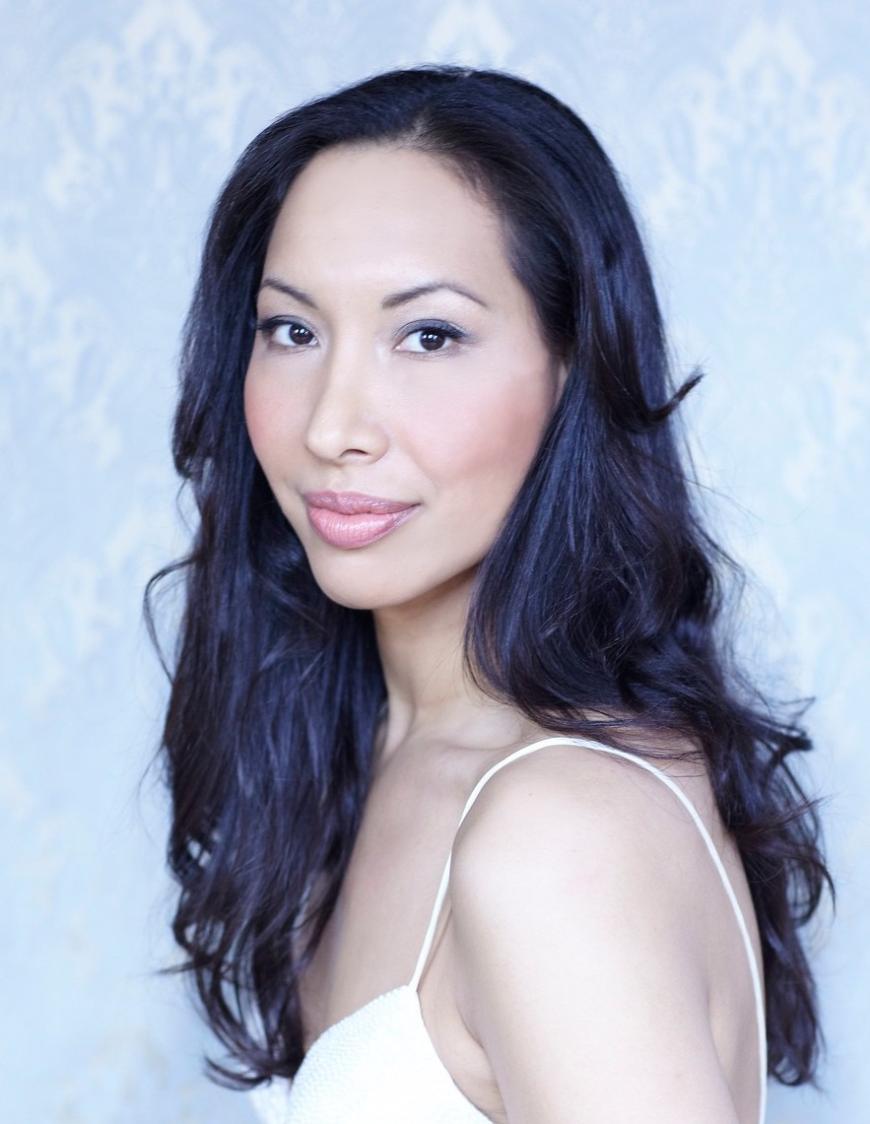
It’s a great question, and I’ve been on a mission about this lately: how to create positivity in my studio. Using myself as an example, I never learned anything better by being yelled at, terrorized, pressured. In fact, one thing I know is that I sing better when my muscles are relaxed. Ninety percent of my body, aside from the engagement of the appoggio, needs to be relaxed. As a neurotic singer, who is very self-pressuring, whenever I would coach and get tighter and tighter, the sound would get smaller and more strained.
I’ve noticed with my students that you can take two routes to get to the same place, but one way is without all the baggage. You can get to excellence through a loving process. But I think there is a bit of a culture sometimes to pressure the students in a way that is actually unrealistic. Having performed for, God, I don’t know how many years now, most of the time your conductor and your colleagues and are going to be encouraging and collaborative.
Hardening your student toward an environment that doesn’t really exist anymore is not actually preparing them for the real world. Prepare them to relax, to be collegial, to have fun and express. All the creative musicmaking happens when you just relax and don’t take it all too seriously. Then you’re able to make more creative choices onstage. That’s what people want now. You tell them in a very clinical way how to build their technique, but you don’t throw in any emotional stuff or head trips on top of it when you’re building the skeletal technique.
Everything on top of that should just be fun.



